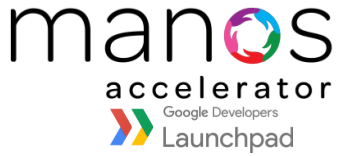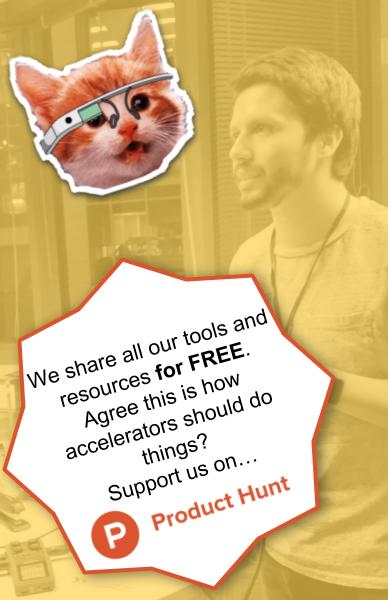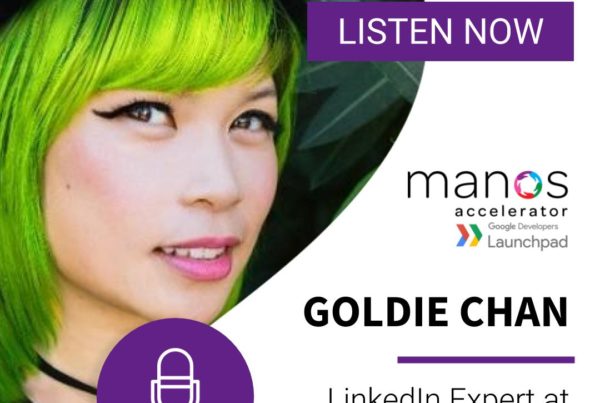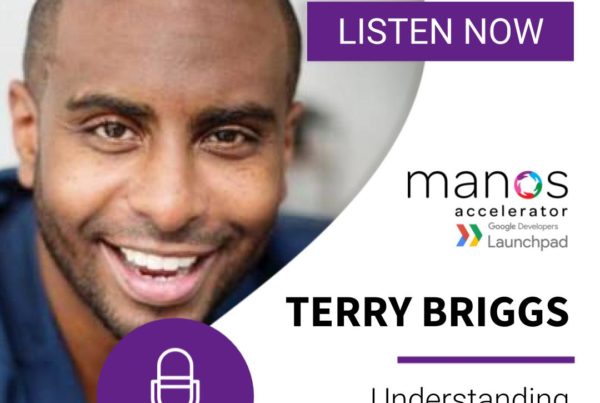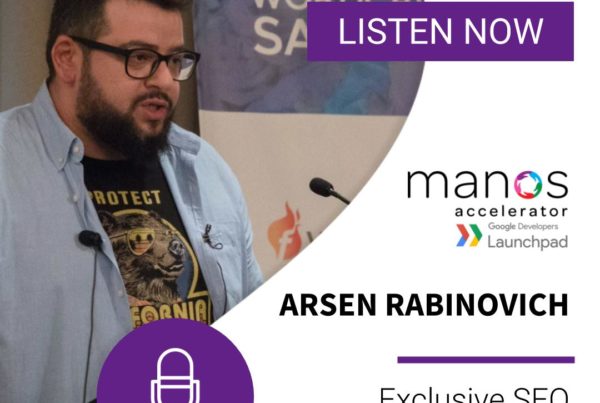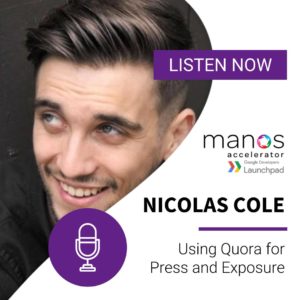 Nicolas Cole is a writer, author, columnist for Inc Magazine, and a 3x Top Writer on Quora.
Nicolas Cole is a writer, author, columnist for Inc Magazine, and a 3x Top Writer on Quora.
He is the Founder of Digital Press, a content marketing agency that builds CEOs, Executives, and serial entrepreneurs into industry Thought Leaders.
Cole has had work published in TIME, Forbes, Fortune, The Huffington Post, Entrepreneur, Business Insider, and more.
SUBSCRIBE
Show Notes
Hello and welcome to another episode of the Manos accelerator podcast. Today I am with ….
Cole: Nicolas Cole, co-founder of digital press.
Juan: That’s amazing what you guys do.
Cole: We work with CEOs, executives, serial entrepreneurs, basically help them, uh, help extract their best insights and turn it into written content.
Juan: And Nicolas is a rockstar, personal brand expert and marketer. He has been working in this space for about, I don’t know, seven or eight years. Um, can you tell us a little bit about your background so people get context about what you’ve done in your career?
Cole: Yeah. So basically just started as a writer. I graduated from Columbia College, Chicago, Creative Writing School, um, and took what I learned and applied it to the business world. I felt like every piece of business content that I read was very dry. There was nothing emotional about it. You couldn’t really connect with it.
Cole: 01:36 So I took some of the things that I learned studying creative writing, like stories, and brought that to the business world and, and I really like to explain to people that it’s not like how the PR world thinks about stories, you know, like I really work to make it value focused. So we work with executives, entrepreneurs, people that have, you know, built or exited companies 10M to 300M in revenue. And so our whole approach to content is really asking them how did you do what you did and what were some of the things that you know, and then turning those into pieces of written content that our readers should read. Like if you’re an aspiring entrepreneur, you don’t want to learn from the blogger of the blogger of the blogger, heard it from somebody else, right? Like, you want to learn from the guy who built the hundred million dollar company, you know, or the woman who exited a company.
Cole: 02:28 Yeah. So that’s kinda why we almost created a threshold. I really only want to work with that caliber of people because I feel like the world’s smartest individuals, they’re not the ones who have the time to sit down and educate. So we can kind of play the middle-man to help them do that.
Juan: That’s amazing. So Cole, most of the listeners are entrepreneurs that are based in the US or they’re in Latin America trying to break into the US market. What is something you’ve learned that you can share with us on this Stacking Growth special? What is something that you can share, you see as either a habit or a tactic of success that you can share with the audience that’s going to help get them to the next level?
Cole: 03:11 Well, for, for me, I started digital press less than a year ago, almost six or seven months ago. And we’ve been really fortunate. We crossed seven figures in recurring revenue. And so what I kind of saw was, I did a lot of work before then to build myself up as a thought leader in that space. So that when I turned on the faucet and I was like: “Hey, I have, I have, a company now. I have a value to provide.” I had already really established that I knew what I was talking about and I did that by just giving away a lot of what I knew for free. I wrote on Quora, Medium, you know, Linkedin. Everything that I knew and wanted people to see me as a thought leader as I gave away for free. Um, so I really encourage a lot of founders to think about what space are they in and what sort of client do they want to attract?
Cole: 03:55 And then ask: Who are all the other people in that space that are also going after that client. And how can you explain your value and what you know better than the next person. And so the way that I’ve kind of found to do that is you’re combining this, you know, you’re working at this intersection of I’m providing value, I’m showing that I know what I’m talking about, but I’m also telling you the personal story of how I learned that in the first place. So a lot of I haven’t really had to do much selling in a year. I wake up to a lot of inbound because I write so much and I and I give away so much for free. And I’m telling people: Hey, here’s how you build a personal brand. Here’s how your content can perform better. Here’s how I think about writing.
Cole: 04:35 Here’s how I structure my articles. And so by the time someone reads that, maybe 9 out of 10 people will go: “that was really helpful. I don’t need you.” And then one out of 10 of those will go: “Wow, you really know what you’re talking about. I don’t have the time to do this. So I’m going to hire you.” And that’s what we’re going for. I want to educate the nine out of 10 and I just want to keep getting my one out of 10 over and over and over again that are like, I want to hire you. Right? I believe that you’re the best. You convince me because I see exactly what you are doing with the money.
And that is so different than let’s say running an ad, right? Because if you see two to competing companies and they’re both just running ads and they’re like, we’re great and we’re great.
Cole: 05:13 And then I come in and I’m like: “Hey, I’m going to explain this to you a to z. You can go do it on your own if you want.” I’m both providing a lot of value for a lot of people. Building my own audience. There’s value in that, but that is going to look at that and go, nobody else is explaining it this simply, you know, nobody else is giving me this much, so I trust you. I want to hire you. Right.
Juan: Do you find that there’s some industries that having a big personal brand isn’t as helpful as maybe spending time doing something else?
Cole: 05:45 I don’t. I don’t really know. I feel like every, every niche that I’ve found, I don’t, I don’t see it hurting you put it that way. I think certainly I’m in an interesting position because we have a, an agency that focuses on written content and I am a writer so that works very well. I’m Kinda the same thing. Like GaryVee is a great example, right? He builds himself as an influencer and then it goes, hey, I can build your influence. You’re embodying the same thing that you’re selling. Um, but I’ve seen, you know, everybody from surgeons do it, uh, to lawyers, to investors to, you know, it’s like there’s really no harm in sharing what you know and having people see you as the authority.
Juan: 06:29 Right. And it’s amazing. I think sometimes as entrepreneurs we get really short sighted with some of these tactics and we expect them to have results overnight and we expect them to have like, like, let me give you an example. Like, I’ll have an app and I sell it for a dollar a month. And so those are the entrepreneurs or, or for no dollars a month and it’s free and then you like make some commission whenever something happens. And the entrepreneurs that have those kinds of business models are really reluctant, I’ve found to have a personal brand because they’re like, OK, if I’ve been on Inc. and it didn’t, uh, it didn’t drive the 50,000 downloads that I needed to run a profitable business. And what I’ve learned is that by having a big personal brand, you’re able to point one and get a lot of really big is to have opportunities that can actually help your business anyways.
Juan: 07:13 So by having the big personal brand, the same CEO with the same company, yes, you may not get the 50,000 downloads, but what can happen is let’s say “Toys R Us”, you know, there’s like some executive at toys were a decision maker at a big company that can say, “Hey, I found out about your company through Linkedin or through your writing on Quora. Um, let’s jump on a bizdev phone call for us to do distribution of your product and little conversations like that. Like people are always, they agree like, yes, it’s not what you know, it’s who you know, but they don’t really know how to kind of hack the WHO, you know part by putting out content at scale and building our personal brand you’re able to touch a lot more lives and that ultimately ends in a lot more introductions, a lot more conversations that can still help your business. So I love the angle that you guys are taking with the personal brand and how scaling that because I’ve seen it’s really powerful across pretty much every single segment, even if it’s not going to immediately drive you a bunch of downloads, it can just open the door to a bigger conversation and a bigger connection, getting funded. All of these opportunities come from having a big influence.
”Executives come to me and then they get on the phone and they're like, "What's the ROI of personal branding?" And I'm like, "You called ME..." and that's the ROI.
Nicolas ColeFounder, Digital Press
Cole: 08:15 Yeah, something that’s really interesting is that, um, so like you said, that to me is what I was explaining in the talk actually is um, people thinking about monetizing their audience A to B. Right. Um, and so, you know, like a lot of, that’s kind of why we wanted to set that threshold for the types of clients that we work with because anybody that comes in the door and they’re like, before I even write you the first check, what’s, why everyone wants to know what their ROI is, but they’re like, how is it within four content pieces, I’m going to make 50k for my business and that’s really not the point. And, and what’s great about working with people of a, of a certain caliber, especially ones that are running companies, they have the budget, they can see it as an investment and not as like a quick fix.
Cole: 08:56 And when you see it as an investment, which is how I’ve treated it for myself, is there’s, there’s this tipping point that happens where a lot of the ROI that people see it’s not a to b, it’s not that direct, it’s a to c because it’s opening a door of opportunity that they wouldn’t otherwise have. So a lot of our clients, right? Like they’ll, they’ll start putting out pieces and there’ll be like their original measure for success because that’s just how people think about it is like how many views did it get, you know, how many followers do I have? But then over time what they start to realize is the real ROI is the fact that they walked into a boardroom with their, you know, advisors or a new investor or somebody and the conversation starts with the sentence, hey, “so I was just reading your article” and that instills, it prompts a conversation.
Cole: 09:42 It prompts like the way that they see that individual, the positioning changes and now you’re not debating like how do I make another $29,99 sale? But you’re talking with someone that has the ability to forge a much bigger partnership or actually move the needle for your business and like educating people on that is really difficult because everything in marketing and advertising is so A to B. It’s, it’s short term is I put in $5k and I get $15k out the other side. But personal branding is you. You treat it as a long-term investment and then there’s a tipping point that happens where literally I don’t have to sell and I don’t because I have people then seeing what I do. They come to me and then they get on the phone and they’re like, what’s the ROI of personal branding? And I’m like, you called me. .. and that’s the ROI.
Juan: 10:29 That’s amazing. Something that wasn’t clear to me when I first started building a personal brand that I’ve come to learn and it’s an analogy that I think especially those of us that grew up in Latin America will understand is every time that there’s like a world cup, there’s an album that comes out by made by a company called Panini. So those of you listening that filled out those Panini albums for the World Cup, you buy sticker albums. It’s just like collecting baseball cards. You buy like sticker albums and you open the sticker album and there’s like a grab bag of stickers to put in the album, like fill in different players. So like, oh I got a Leonald Messi. I got Cristiano Ronaldo, you know, and you’re trying to fill up the entire album by the time that the World Cup is over and it’s just like a fun little hobby that happened and the sticker packets or like fifty cents or something.
Juan: 11:11 So you go and you buy a bunch of them and it’s always a grab bag of what’s going to be in it and I’ve come to learn that having a personal brand, it’s more about like anytime that I do a post, it’s like I’m buying one of those little Panini packets because I don’t know the opportunities that are going to come my way, but the bigger and bigger that the brand gets, the more like guaranteed stickers that are in my grab bag. So every single post I get, there’s always something that comes out of it. There’s like people want to jump on a phone call, people want to jump on a podcast, people want to write an article, people want to do an interview. People wanna introduce me to someone else on every single post and it didn’t even really take that long. It was like six months of just being intentional with it; imperfect action.
Cole: 11:54 There’s like so many times that I just wasn’t able to do it. It was too late at night, got busy. It wasn’t even that big of a priority, but just not. I’m changing how I perceive myself, but just still keeping my identity to. I’m building a personal brand and then being magnetic to the fact that that is what I’m doing. Even if I have imperfect action, even if I cheat for four or five days, it’s always like, no, but I’m building a personal brand instead of like, oh, I cheated, I, I suck. I’m not able to do this. I guess I just won’t to build a personal brand. Instead it’s always like, yes I am. Yes, I am. No matter how many cheat days, it’s always back to this is what I’m doing over like six, seven, eight months. It compounds. So fast, so fast.
Cole: 12:32 So, um, for those of you that are listening, that are just now getting started on a personal brand, what’s one word of advice that you can say that you can say to them? What’s the one word of advice to actually execute on our personal brand and grow it?
Well, I feel like it’s what you were just speaking to that consistency. Um, there are a couple of basics. It’s like get your photography on point, you know, make sure that your bio isn’t like “loves coffee and cats”, you know, like put, put what your value is in there and why people should work with you. Uh, and then, and then just make sure and realize that you’re, the, the measure for success is always putting out something new, you know. nd a lot of people think like, I’m going to build a personal brand. So I’m gonna hire a PR firm to make sure that I have a bunch of logos on my site.
Cole: 13:15 And that’s not what a thought leader is. A thought leader is the fact that you read the last thing that I wrote and you want me to elaborate on that on your podcast. It’s not “You went to my site, you saw Inc logo” you were like, I think you’re amazing. Right? And there’s a huge difference. Everybody’s so focused on the perception of it.
And then you’ve got people like me and I’m surpassing everybody because I have not spent a single dollar on advertising. I love that. I had no PR, no advertising, nothing. And everything that I’ve gotten has been earned. So. And that’s why all the opportunities come. And so like the hardest thing for people is, especially in the world of advertising and marketing where everyone is selling you the short term solution. Like I have to be the one to walk around and be like, nope, you’re, none of you are going to believe me.
Cole: 14:02 You know, and I’m going to tell you like, buy this stock at, you know, a dollar and trust me that in four years it’ll be worth a lot. And instead everyone’s like, no, I’m going to buy it at one but sell it at two. You know, and that’s, I, it’s hard because so much of what I do is educating people on like the reframe rather than just like selling them some short term solution.
I love that. And there’s so much culture and entrepreneurship of perception is reality. Like if people just think that I’m a thought leader, then I’m a thought leader and a Marc Ecko planted this, the CEO of Ecko Unlimited clothing brand from, you know, really big in the eighties and nineties. He really planted this thought in my head of perception isn’t reality. Reality is reality. So you can call yourself a thought leader, you can set up the website and put the logos on there. But unless you’re actually influencing people’s opinions and you can only do that by creating at scale and distributing
Juan: 14:52 it at scale and being consistent with it, if you’re missing that element, no amount of perception is going to actually get you to a point where that influence means anything. And it’s a really long-term investment.
Cole: 15:07 You’re absolutely right. Like you might be doing it for the next two years, but actually you’ll probably going to do it for the next four months until it hits was actually not even by the way, this is what gets me so fired up because I seriously, I took, it, took me four years, took me four years, didn’t make a cent, didn’t make a cent off of my personal brand. Tried everything. Learned the hard lessons like was in the trenches, like all learned myself and then I took all of that, gave it all away for free. And then people that see those same results in four months are still like, why does it take so long? And I’m like, you have no idea. You have no idea what I’ve done for you. Like I’ve shortened your growth growth curve like exponentially. And that’s just, it just really shows how impatient people really are, you know? And like that’s. That really is why it’s almost like now I am, I’m at a point where I can only work with the CEOs and the executives because nobody else is going to have the patience or be willing to pay for that help like beyond a month because they’re so focused on the short term.
Juan: 16:08 Okay, Manos Nation! Do not forget your chance to win digital goods and resources on every episode right here on the podcast. It’s very simple. You just subscribed to the show on itunes in. Once you’ve done that, message the word “Manos” to m.me/ManosAccelerator. Subscribe on itunes and then message Manos to the website, m.me/ManosAccelerator. See you on the next one.
Juan: 16:38 I love it. So Nicolas Cole, thank you so much for coming here. A fast track of success. You have more in common with the ceos and the middleman. It’s obvious that that’s why you’re able to get to where you are going. I have nothing but high expectations for for your career. Thank you so much for being here. Grew his company from zero to seven figures in less than a year. Ceo of digital press, what’s the best way to get in touch with you on social media or online?
Cole: 17:01 I’m everywhere. My website: nicolascole.com, or all my Socials: @Nicholascole77.

